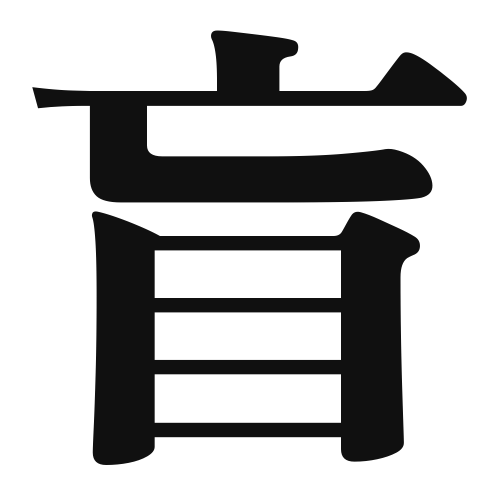1. Overview of Meaning
The kanji “盲” (mou) means “blind” or “blindness.” It is used to describe a lack of sight, either literally or metaphorically, indicating ignorance or unawareness in certain contexts.
2. Formation and Radical
Formation of the Kanji: The kanji “盲” is a compound character that combines the radical for “eye” (目) with the character “亡” (meaning “to perish” or “to disappear”). This combination suggests the idea of losing sight.
Radical: The radical of “盲” is 目 (eye), which is commonly associated with vision-related concepts.
3. Examples of Usage
Common Words and Phrases:
- 盲目 (moumoku) – blindness
- 盲信 (moushin) – blind faith
Example Sentences in Daily Conversation:
- 彼は盲目の人々のためにボランティアをしています。 (He volunteers for blind people.)
- 盲信は危険です。 (Blind faith is dangerous.)
4. Synonyms and Antonyms
Similar Kanji:
- 失明 (shitsumei) – loss of sight; refers specifically to the condition of becoming blind.
- 無知 (muchi) – ignorance; while it can imply a lack of knowledge, it does not specifically relate to sight.
Antonyms:
- 明 (mei) – bright; this kanji represents clarity and understanding, the opposite of blindness.
5. Cultural and Historical Background
Relation to Japanese Culture: The concept of blindness is often explored in Japanese literature and art, symbolizing not just physical blindness but also a lack of insight or awareness in life.
Proverbs and Idioms:
- 盲亀の浮木 (mouki no ubaki) – “A blind turtle finding a floating log,” which signifies a rare opportunity or chance.
